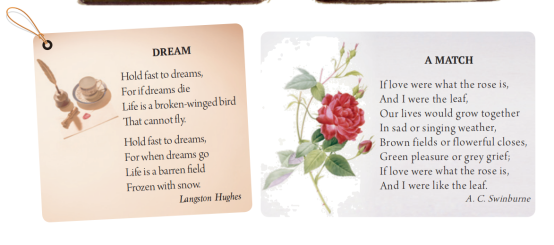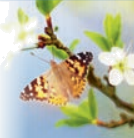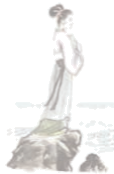Firstly,
I hope my suggestions will be


Wind on the Hill | Dream | A Match | |
| Subject | |||
| Images | |||
| Rhymingwords | |||
| Rhetorical devices |
1. What do we know about the writer?
| A.He never travels around the world. |
| B.He is a teacher. |
| C.He was born disabled. |
| A.Encouraging. | B.Polite. | C.Strange. |
1. Have you ever written a poem before? If so, what did you write about?
2. What might inspire you to write poems?
5 . A FEW SIMPLE FORMS OF ENGLISH POEMS
There are various reasons why people compose poetry. Some poems tell a story or describe a certain image in the reader’s mind. Others try to convey certain feelings such as joy and sorrow. The distinctive characteristics of poetry often include economical use of words, descriptive and vivid language, integrated imagery, literary devices such as similes and metaphors, and arrangement of words, lines, rhymes, and rhythm. Poets use many different forms of poetry to express themselves. Now we will look at a few of the simpler forms.
Some of the first poems a young child learns in English are nursery rhymes. They are usually the traditional poems or folk songs. The language of these rhymes, like Poem A, is to the point but has a storyline. Many children enjoy nursery rhymes because they rhyme, have a strong rhythm, and often repeat the same words. The poems may not make sense and even seem contradictory, but they are easy to learn and recite. By playing with the words in nursery rhymes, children learn about language.
One of the simplest kinds of poem is the “list poem”, which contains a list of things, people, ideas, or descriptions that develop a particular theme. List poems have a flexible line length and repeated phrases which give both a pattern and a rhythm to the poem. Some rhyme (like B and C), while others do not. Another simple form of poem that amateurs can easily write is the cinquain, which is made up of five lines. With these, you can convey a strong picture or a certain mood in just a few words. Look at the example (D).
Haiku is a Japanese form of poetry that consists of 17 syllables. It has a format of three lines, containing 5, 7, and 5 syllables respectively. It is not a traditional form of English poetry, but is very popular with English writers. It is easy to write and, like the cinquain, can give a clear picture and create a special feeling using very few words. The haiku poem (E) on the right is a translation from Japanese, which shows a moment in the life of a delicate butterfly.
English speakers also enjoy poems from China, those from the Tang Dynasty in particular. A lot of Tang poetry has been translated into English, such as this one (F).
With so many different forms of poetry to choose from, you may eventually want to write poems of your own. Give it a try!
| A | Hush, little baby, don’t say a word, Papa’s gonna buy you a mockingbird. If that mockingbird won’t sing, Papa’s gonna buy you a diamond ring. If that diamond ring turns to brass, Papa’s gonna buy you a looking glass. If that looking glass gets broke, Papa’s gonna buy you a billy goat. If that billy goat won’t pull, Papa’s gonna buy you a cart and bull. |
|
| B | Only One Mother Hundreds of stars in the pretty sky, Hundreds of shells on the shore together, Hundreds of birds that go singing by, Hundreds of lambs in the sunny weather. Hundreds of dewdrops to greet the dawn, Hundreds of bees in the purple clover, Hundreds of butterflies on the lawn, But only one mother the wide world over. George Cooper |
|
| C | LIFE Life can be good,Life can be bad, Life is mostly cheerful, but sometimes sad Life can be dreams, Life can be great thoughts Life can mean a person, Sitting in court. |
|
| D | Brother Beautiful, athletic Teasing, shouting, laughing Friend and enemy too Mine |
|
| E | A fallen blossom Is coming back to the branch. Look, a butterfly! |
|
| F | Where she awaits her husband On and on the river flows. Never looking back, Transformed into stone. Day by day upon the mountain top, wind and rain revolve. Should the traveller return, this stone would utter speech. Wang Jian |
|
| Type of poem | Characteristics | Example | Topics and poetic devices |
| Nursery rhyme | • concrete but creative language | A | • love between father and baby • rhymes, repetition |
| List poem | B | ||
| C | |||
| Cinquain | D | ||
| Haiku | E | ||
| Tang poem | F |
1. What do we know about Langston Hughes?
| A.He published a poetry in the eighth grade. |
| B.He enjoyed traveling in his teenage years. |
| C.He was brought up by his grandmother. |
| A.He wrote The Negro Speaks of Rivers. |
| B.He was elected as the class poet. |
| C.His first poetry came out. |
| A.In the US. | B.In Haiti. | C.In Japan. |
| A.In 1967. | B.In 1961. | C.In 1951. |
1. Why did the woman decide to become a professional poet?
| A.Because she met a famous poet |
| B.Because she did a poetry course |
| C.Because she won a poetry prize. |
| A.Environment protection. |
| B.Personal relationships. |
| C.Climate change. |
| A.It’s well written. |
| B.It’s difficult to understand. |
| C.It’s as good as modern poetry. |
| A.Organize a poetry festival. |
| B.Take a break from writing poetry. |
| C.Turn some of her poetry into songs |
1. Why is the man nervous?
| A.He has to read his poem on stage. |
| B.He has to write a poem in class. |
| C.He will attend a competition. |
| A.At school. | B.At the man’s home. | C.At a poetry festival. |
1. What is the man reading?
| A.A poem. | B.A novel. | C.A magazine. |
| A.Angry. | B.Curious. | C.Indifferent. |









